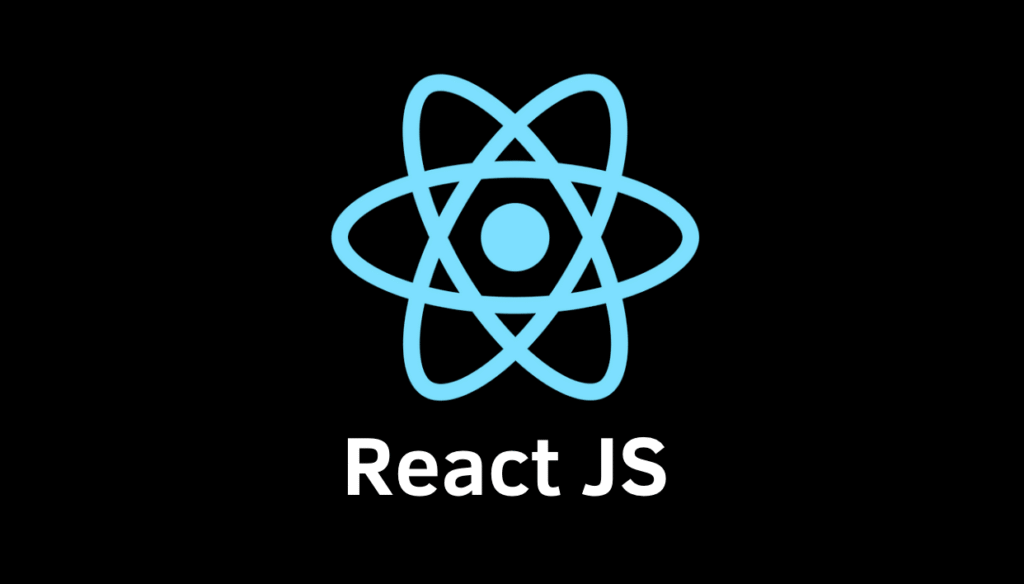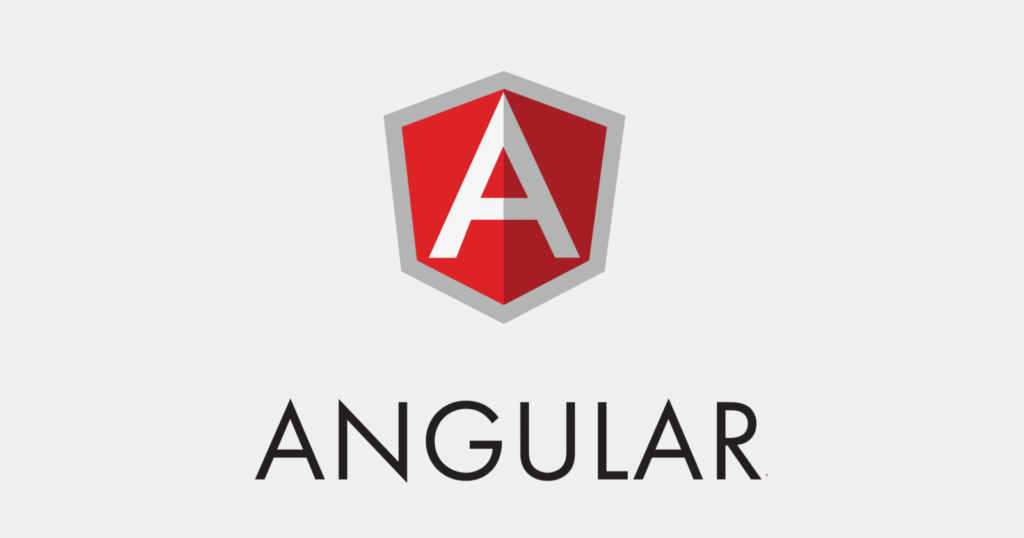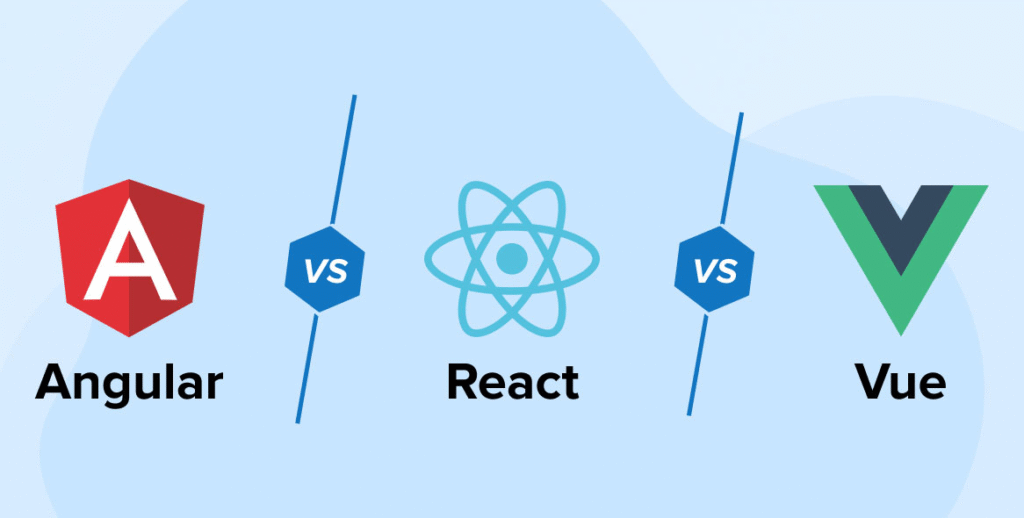The world of frameworks never stops evolving. With every passing moment, as a frontend developer, you are left wondering which is the best framework you should learn, adapt to, or recommend to others. As of 2025, React vs Angular vs Vue remains the biggest debate in frontend development. Each framework has its own loyal community, unique strengths, and growing adoption. But the question isn’t just about popularity—it’s about which framework is the most effective when it comes to scalability, performance, and long-term use.
In this blog, we will dive into React vs Angular and React vs Angular vs Vue to determine the most effective framework in 2025, comparing them based on scalability, ease of learning, community support, and long-term viability. This will help you decide which framework is the best fit for your career or business.
WHAT IS FRAMEWORK?

Before we begin the comparison of the most effective framework, let’s first understand what a framework is. A framework is basically a collection of pre-written code, tools, and guidelines that provide a standardized structure for building web applications. This simplifies complex development tasks that would otherwise take hours for developers to figure out. It is useful for automating common tasks, providing reusable components, and enforcing best practices. This allows developers to focus more on application logic and features rather than low-level infrastructure. Frameworks provide a foundation for creating reliable, scalable, and maintainable web applications, services, and APIs.
Now that you know what a framework is, let’s begin our comparison of the best framework between React Vs Angular Vs Vue in 2025.
React Framework:

What is React Framework? Or, from now on, what we will refer to as React JS or React JavaScript. It is a free and open-source front-end library for building user interfaces based on components. It is maintained by Meta along with a community of individual developers and companies. React is often referred to as a “framework” because of its worldwide adoption and extensive ecosystem. However, React itself primarily focuses on the view layer of an application, which is why it is technically classified as a library.
Angular Frameworks:

Now that we know what React JS is, let’s talk about Angular Framework. Angular is an open-source framework and platform for building single-page client applications using HTML and TypeScript. It is developed and maintained by Google along with a community of developers. Angular offers a component-based architecture and a comprehensive set of integrated libraries for features such as routing, forms, and client–server communication. It provides a structured development environment, making it highly suitable for large-scale enterprise applications. Angular also includes powerful developer tools like the Angular CLI for building, testing, and deploying code efficiently.
Vue Frameworks:

With React JS and Angular Framework out of the way, let’s move to Vue, or Vue.js—whichever you prefer calling it. Vue is another open-source framework, but it differs in some ways. Vue is a progressive JavaScript framework used for building user interfaces (UI) and single-page applications (SPAs). It is designed for incremental adoption, which means it can be easily integrated into existing projects or used to build full-scale applications.
Now that we understand what each of these frameworks does, let’s compare all three to determine which is the best framework and find out which framework is the most effective in 2025.
React Vs Angular Vs Vue:

I know you’ve been waiting long enough to find out which is the best and most effective framework among Angular, React JS, and Vue.js. So, let’s dive right in without wasting any more time, so you can understand where to invest your time, effort, and resources.
Popularity & Community:
In terms of popularity, if we look at sheer numbers in 2025, React leads with over 230,000 stars on GitHub, followed by Angular with approximately 96,000 stars, and Vue with 48,000 stars. Statistically, React powers over 34 million live websites, Angular around 75,000, and Vue approximately 34,000. According to a survey conducted on Stack Overflow, React is used by 42.87% of developers, Angular by 17.46%, and Vue by 18.97%.
Without a doubt, the numbers show that React JS has a large number of community supporters due to its plethora of third-party libraries. Angular and Vue are also active, but Vue is more or less focused on a niche community. React also offers an abundance of tutorials, documentation, and community forums. While Angular and Vue have fewer resources, they still provide a substantial library of comprehensive guides. React JS is maintained by Meta, Angular by Google, and Vue by an independent developer, Evan You, who has a dedicated community supporting it.
Learning Curve & Ease To Use:
When it comes to learning, React has a moderately steep curve because you need to familiarize yourself with JSX and hooks like useState and useEffect. Angular has a steep learning curve, as it requires understanding concepts such as TypeScript, decorators, dependency injection, and RxJS. As for Vue, it has a gentle learning curve because its syntax is straightforward and it integrates seamlessly into any project.
For React, due to its flexibility and wide range of libraries and tools, developers find it vast and dynamic. For Angular, once mastered, it offers a cohesive and opinionated framework, promoting consistency across large projects. Developers appreciate it but often find it comprehensive and overwhelming. Finally, when it comes to Vue, it receives a lot of praise for its simplicity and flexibility, making it ideal for beginners while still being efficient for experienced developers. Its precise, clear syntax and intuitive design lead to a positive and productive development experience.
Recommendation: For developers seeking a balance between ease of learning and flexibility, Vue is the easiest to get started with, while React offers flexibility for larger, dynamic projects, and Angular is best suited for large-scale enterprise applications where consistency is critical.
Performance:
In terms of performance, both React and Vue use a virtual DOM, while Angular uses a real DOM. React allows fast updates, making it ideal for dynamic single-page applications (SPAs). Angular, with its real DOM and built-in optimizations like Ahead-of-Time (AOT) compilation and change detection, is suitable for large-scale enterprise applications. Vue is lightweight and efficient in updating only the necessary components, making it perfect for small to medium projects that require rapid development.
Scalability:
For scalability, React is flexible, reusable, and adaptable. Its architecture supports apps with dynamic growth and frequent updates. Angular has a strict structure, built-in tools, and is enterprise-ready, making it best suited for large-scale, enterprise-based applications. Vue offers incremental adoption, a flexible structure similar to React, and state management with Vuex. It is ideal for small to medium projects that may grow over time.
Features:
React’s key features include its component-based architecture, JSX syntax, flexible state management, and an extensive ecosystem. Its strengths lie in flexibility, modularity, and being developer-friendly. Angular is a full-fledged framework with features like two-way data binding, dependency injection, and a powerful CLI. Its strengths are its structured approach, feature-rich nature, and enterprise readiness. Finally, Vue offers progressive adoption, reactive data binding, and official libraries for routing and state management. Its strengths are simplicity, versatility, and ease of use.
Long Term Viability:
React is owned by Meta, has a very large and active community, and has a high probability of staying relevant in the future, as it is widely used by many startup companies. Angular is owned by Google, and its community is mostly composed of large enterprise companies. It also has a high probability of remaining relevant, as it is a reliable choice for big enterprises. Vue is a community-led framework maintained by Evan You. It is mainly used by startups and has a medium-to-high probability of staying relevant, particularly for small- to medium-sized projects.
So, which framework is the best in 2025? Well, it really depends on your project, your team, and your long-term goals. Let’s break it down:
React: If you’re looking for flexibility, a huge ecosystem, and a framework that scales well for dynamic single-page applications, React is your go-to. Its massive community means there are plenty of tutorials, libraries, and support available, making it one of the most effective frameworks for startups and developers looking to future-proof their careers. When considering which framework is the most effective for rapid development and versatility, React often comes out on top. Many developers consider it the best framework for building modern, interactive web applications.
Angular: For large-scale, enterprise-level applications, Angular takes the lead. Its opinionated structure, built-in tools, and strong conventions make managing complex projects much easier. If consistency, maintainability, and long-term support matter most to your team, Angular is one of the most effective frameworks for enterprise solutions. For teams asking which framework is the most effective for large-scale applications, Angular often ranks as the best framework because of its structured approach.
Vue: Perfect for small to medium projects or when you want to integrate a framework quickly into an existing project. Vue’s simplicity, gentle learning curve, and flexibility make it ideal for rapid development while still being powerful enough for more complex applications. For developers exploring which framework is the most effective for quick, efficient projects, Vue is considered one of the most effective frameworks. Many agree it is the best framework for beginners and small-to-medium scale applications.
The Bottom Line: There’s no single best framework for everyone, but understanding which framework is the most effective for your needs makes the decision easier. If you prioritize speed, flexibility, and startup adoption, React is often the most effective choice. For enterprise-scale apps, Angular is unmatched in its performance and structure, making it the best framework for large teams. And if you want a beginner-friendly, versatile option for small to medium projects, Vue is the most effective framework for rapid, maintainable development.

Choosing which framework is the most effective in 2025 can feel overwhelming, especially with options like React, Angular, and Vue. That’s where webmerito comes in. While small, webmerito has hands-on experience helping startups and small businesses navigate the world of web development. We guide developers in selecting the best framework for their unique needs—whether it’s a dynamic single-page application, a large-scale enterprise solution, or a small-to-medium project that needs rapid development.
At webmerito, we focus on the most effective frameworks for each scenario. Our approach ensures that you not only choose a framework that works today but one that remains scalable and maintainable for years to come. Even as a small team, we pride ourselves on offering personalized guidance and practical recommendations to help you make informed decisions.
